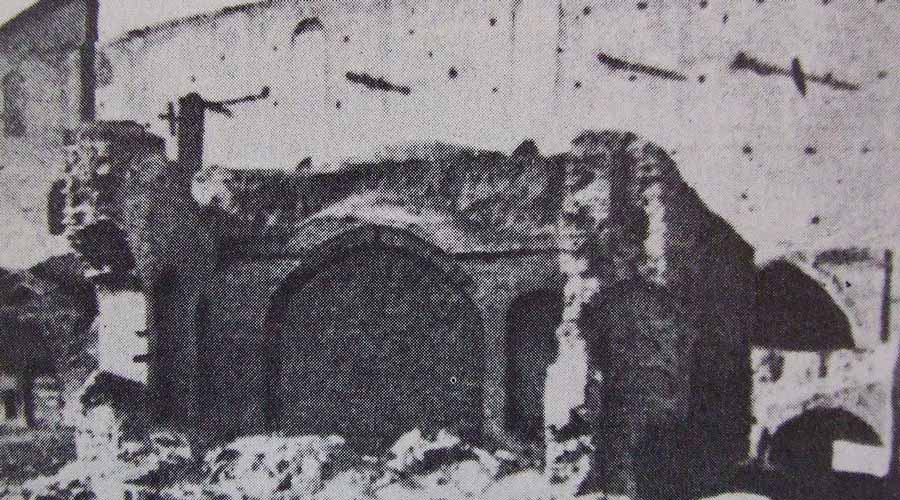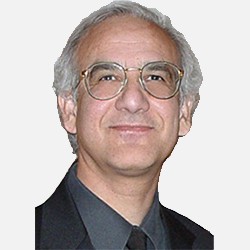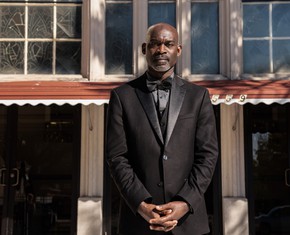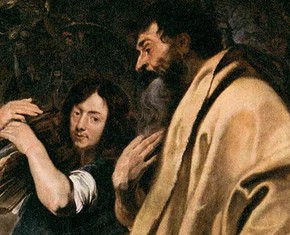The views expressed in our content reflect individual perspectives and do not represent the authoritative views of the Baha'i Faith.
The very first words of the Baha’i revelation came from a dream experienced by Baha’u’llah, the founder of the Baha’i Faith:
One night, in a dream, these exalted words were heard on every side: “Verily, We shall render Thee victorious by Thyself and by Thy Pen. Grieve Thou not for that which hath befallen Thee, neither be Thou afraid, for Thou art in safety. Erelong will God raise up the treasures of the earth – men who will aid Thee through Thyself and through Thy Name, wherewith God hath revived the hearts of such as have recognized Him.” – Baha’u’llah, Epistle to the Son of the Wolf
This statement is Baha’u’llah’s own description of his first experience of divine revelation in the winter of 1852, nine years after the inception of the Babi movement. Here, Baha’u’llah recounts his first instance of revelation in the middle of his imprisonment in a Tehran dungeon, during the time when the Babi community was subject to utmost cruelty, persecution, torture and murder in Iran.
The Babi movement, initiated by the Bab in 1844, paved the way for the emergence of the Baha’i culture. The Bab accomplished this goal by questioning the prevalent Islamic traditions in 19th century Iran, and offering a new interpretation of religion and human identity.

But in this short discourse, I will not emphasize the historical background and significance of this passage from Baha’u’llah. Instead, I want to emphasize some of the hidden meanings and messages of this historic passage, which represents a turning point in human history. This two-part essay exploring the initial impetus of the Baha’i revelation leads off a longer series on 19 sacred words and their meanings.
In fact, I believe that the passage quoted above contains within itself the essence of almost all the teachings of Baha’u’llah, teachings which were unveiled during forty years of his ministry after this initial experience.
Realizing the omnipresence of those future teachings in Baha’u’llah’s very first experience of revelation is itself a testimony to the pure, primordial and un-acquired character of the revelation of Baha’u’llah. So in these first two essays in a longer series, let’s look at eight of the implications of these creative words from Baha’u’llah.
1. Baha’u’llah’s Emphasis on Non-Violence
The first implication of this word is Baha’u’llah’s emphasis on non-violence as the essence and heart of his new worldview.
As the future writings of Baha’u’llah clearly testify, Baha’u’llah saw himself as a divine educator whose main goal involved the creation of peace in the world. This peace extends from the prohibition of religious violence in the name of holy war, to affirmation of the necessary conditions for emergence of an enduring universal peace in international relations.
What Baha’u’llah’s first experience of revelation emphasizes – “Verily, We shall render Thee victorious by Thyself and by Thy Pen” – is the replacement of the sword by the word.

Rendering the cause of God victorious will not take place by violence and the sword, rather it would take place by the charismatic and loving being of Baha’u’llah and by the movement of his pen. Thus it is the movement of the pen that replaces the movement of the sword as the agent of assisting the religion of God.
This new religion is based upon the freedom of conscience of all human beings. From now on, the Baha’i teachings say, it is only through voluntary acceptance of the message of Baha’u’llah by the heart of the people that a person can become a member of the new religion.
2. A New Approach to Oppression
The second message of this word of Baha’u’llah reveals a new approach to oppression. Baha’u’llah’s first experience of revelation emphasizes the non-violent method of creating peace as the essence of his teachings. This means that the ultimate way of eradicating injustice and oppression in the world is through a loving, peaceful culture which transforms the hearts of the people and brings them together.
Remarkably, Baha’u’llah received this revelation in a moment characterized by the most extreme expression of cruelty, tyranny and genocide. The Babi community was subject to extermination and Baha’u’llah himself innocently was imprisoned, when all expected that he would not survive that black dungeon. But the response of Baha’u’llah to this extreme oppression was neither a call for violence, nor hatred of the oppressor. Instead, he responded to that oppression by engendering a culture of universal love and peace, a culture which affirms the beauty and dignity of all human beings.
As another unique implication of this new approach, Baha’u’llah did not just focus on the behavior and culture of the oppressor. Instead, as part of his regeneration of the world, he tried to transform the behavior and the culture of the oppressed as well. He rejected the tendency of some of the Babis who were looking for revenge, who demonized the oppressor majority and longed for murder of the king. Baha’u’llah believed that a lasting peace requires critique and removal of any hateful tendency or culture wherever it is found. The ultimate solution to oppression, the Baha’i teachings say, is universal love and not demonization of the oppressor.
3. The Equality of Men and Women
The initial words of Baha’u’llah – first uttered when he was unjustly imprisoned in the Black Pit in Tehran in 1852 – advocate the equality of men and women.
“Baha’u’llah, a male prophet, defines himself as a being whose spiritual truth is portrayed as feminine. “
In his various writings, including at the beginning of a tablet called the Surih of the Temple, Baha’u’llah makes it clear that he received his divine message through a female divine reality – that through this maid of heaven, God communicates his revelation to Baha’u’llah:
While engulfed in tribulations I heard a most wondrous, a most sweet voice, calling above My head. Turning My face, I beheld a Maiden – the embodiment of the remembrance of the name of My Lord – suspended in the air before Me. So rejoiced was she in her very soul that her countenance shone with the ornament of the good pleasure of God, and her cheeks glowed with the brightness of the All-Merciful. Betwixt earth and heaven she was raising a call which captivated the hearts and minds of men. She was imparting to both My inward and outer being tidings which rejoiced My soul, and the souls of God’s honoured servants. – Baha’u’llah, The Summons of the Lord of Hosts
In another one of his writings, Baha’u’llah clearly points out that this maid of heaven is nothing but the truth of the Baha’i teachings, a truth which is the same as the truth of all prophets of God, the divine Will.
This feminine symbolization of the divine revelation implies a revaluation of all values.
If God communicated to Moses through a burning bush, and to Jesus through a bird, and to Muhammad through a male angel, now the new divine Springtime, the Baha’i revelation, is characterized by the sacredness of the female symbol. In Baha’u’llah’s worldview, God is far above male/female attributes — but then the highest sacred reality, the divine reflection and revelation, is now symbolized as a feminine reality.
Baha’u’llah, a male prophet, defines himself as a being whose spiritual truth is portrayed as feminine.
This means that the traditional description of women as symbols of irrationality, cunning and base desires has finally come to an end. The glorification of the female symbol is central to the Baha’i revelation, and inseparable from its theology. Needless to say, a movement whose main goal is the creation of peace must replace the violence of patriarchal culture with the loving and spiritual culture of equality and dignity of all humans, whether male or female.
4. The Negation of Miracles
In the first words Baha’u’llah uttered at the beginning of his revelation, in a historically and religiously unprecedented way, he negated miracles as the proof of the truth of the messenger of God.
For Baha’u’llah, his religion can be vindicated through two ultimate proofs: his own being and character, and his words and message.
“for the Bab and Baha’u’llah, the function of a prophet is not making miracles or defying the laws of the universe”
So the extraordinary character and charisma of Baha’u’llah, and his universal love for reality, constitute the supreme evidence of his divine mission. After that, his creative words, the divine words, create a new civilization, correspond with the needs and spirit of the time, bring hearts together, and guide humanity to a mystical journey whose destination is the spiritualization of life.
Therefore, for the Bab and Baha’u’llah, the function of a prophet is not making miracles or defying the laws of the universe. For Baha’u’llah and all prophets of God, the true evidence of the presence of God is the very magnificent laws of nature.
Religion belongs to the realm of spirit, and the supreme miracle and proof of a prophet are the words of God, that spiritual reality which creates a new heaven and earth. The Baha’i teachings say that the traditional idea of miracles not only encourages a culture of superstition and magical obsession; it is contradictory to the justice of God:
Miracles can only be observed by the few people who live at the same time and in the same place that the prophet lives, who by chance are present at that moment of miracle making. If miracles are the evidence of the truth of a prophet, God would then only provide compelling evidence for a few, and withhold it from the rest of humanity.
Such an approach to religion reduces it to a cult of superstition, traditionalism, and renunciation of the reasoning power and independent thinking of human beings. On the contrary, the definition of God’s word as the supreme miracle and evidence of the spiritual truth affirms the sanctity of human consciousness.
In this way, the messenger of God brings not only the words of a new revelation, but also infuses reality itself with renewed life.
















Comments
Sign in or create an account
Continue with Googleor